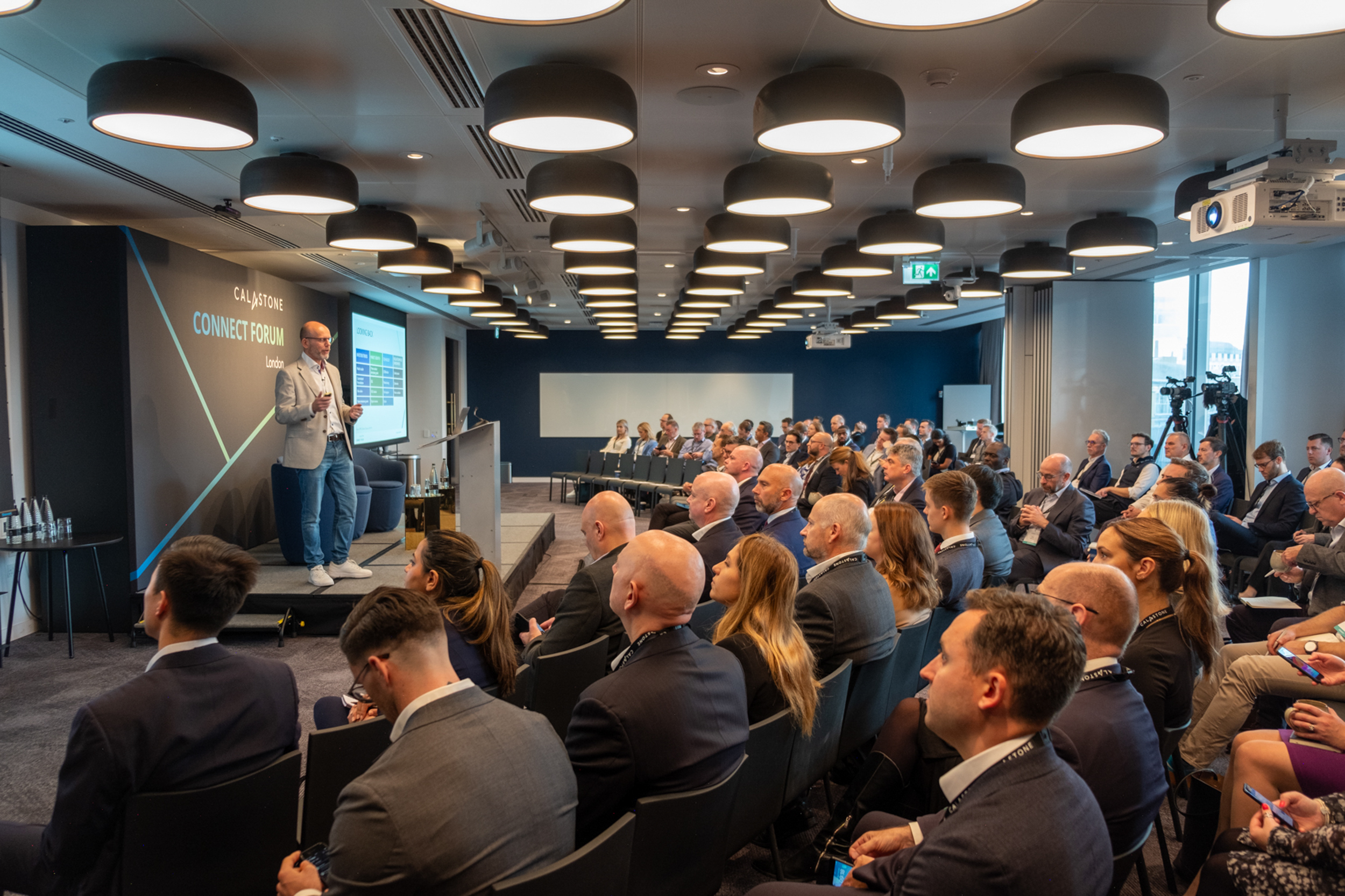The increased adoption of automation and digitalisation are critical to our industry’s future success. This continuing transformation gives fund administrators the opportunity to adapt and capitalise on change.
This was a key theme from our Connect Forum, which we held at the beginning of December.
Our forum discussions identified several strong emergent trends for the asset management industry. Throughout our sessions, our panellists explored the state of play within fund administration, followed by current investor demands and why those demands challenge fund administration. Following on from that, our experts suggested what fund administration needs to do to service customers better and, finally, why digital transformation and fund administration will need to converge in the future.
The current state of play: What fund administration looks like today
The key problem in fund administration that our speakers highlighted is that most of the infrastructure within firms is no longer fit for purpose. This is exacerbated by fund data being continually pulled from many different sources and, therefore, is not as reliable, or meaningful, as it could be. It means it is impossible to provide the up-to-the-minute real-time data. Essentially, fund information is not always provided when the asset manager wants it or how they want it provided, negatively effecting the investor experience.
Ben Bobroff, Head of Technology Sales Consulting for EMEA and APAC, Northern Trust stated in our panel that “There is a need for a fundamental redesign and a need to take a data centric approach to move to a true real time environment, coming out of the constraints of legacy architecture with data residing in multiple different applications.” He also highlighted that this was a particular problem within TA, resulting in significant market impact.
While modifying outdated infrastructure is not a new concept for many fund administration departments, when entire departments had to work from home during COVID lockdowns, it became ever more apparent that more changes were needed. Speakers highlighted that working from home emphasised the extent of the inefficiencies that unsuitable infrastructure caused. For example, the pandemic highlighted the number of manual workarounds within the back and middle-office used by fund administrators. For the fund administration community, these workarounds add up to mass inefficiencies that push up prices, costs, and fees and make adhering to regulation more difficult.
Suryanshu Mishra, Global Head of Fund Services, JP Morgan, stated during the Connect Forum that these issues are further exacerbated by the increasing demands that are placed on fund administrators in terms of the sheer number of services they offer, with even more complexity arising from the varying jurisdictional requirements. Its therefore no surprise that our recent research with Global Custodian showed that nearly all fund administration processes are not fully automated.
Investor demands and the impact on fund administration
With these issues in mind, what is the market impact? The fund admin status quo is very much at odds with both present and future investor demands. Despite many of the shortcomings of the asset management infrastructure, (our panellist Ben Bobroff claims that faxes are not only still used in fund admin, but used extensively), the industry continues to see large fund inflows, thanks to investors seeking to invest the savings they built up during the pandemic. But if these flows are to continue in the long term, investors will want access to more types of assets, through apps, platforms and other digital technology.
As our very own Josh Wade identified in his Connect Forum discussion, the future investor is ‘technology enabled, increasingly autonomous, social minded and impact focused’. While the latter two ideas are concepts that investment products themselves will need to address, the first two factors are notions that a digitalisation of fund administration will largely help facilitate.
Additionally, even though investor demands are set to be increasingly complex, they want solutions to their investment needs more quickly than ever before. While that provides an opportunity for active fund managers, the technology needs to be there first to help support fund managers make those alpha-generating decisions within complex situations.
Currently, fund administration systems are yet to adapt to these investor requirements, or the wider market. One reason for this is the barrier to providing quick servicing, because of the lack of being able to access clean, real-time data derived from one reliable data source: the so-called golden record.
The golden record
Legacy infrastructure must be detangled and extracted from the complex web of systems at fund firms. The need for one data source to underpin technology built upon it was repeatedly raised as a critical concept to get right, right from the start.
“To me it always starts with the data. Unless, you have that, you can’t really start to layer over more advanced technologies” Ben Bobroff added.
Asset managers need to be able to extrapolate pertinent information quickly from that golden record data source so they can then analyse it and use it productively. It will be imperative to have dynamic technology at fund managers’ disposal that can be used in multiple ways in multiple situations or scenarios.
Having a reliable data source will have other benefits too. Regulatory compliance will be far easier to achieve and reduce the impact on fund administration of that regulatory compliance, while simultaneously making profit margins healthier. And, of course, technology providing real-time data could materially help with that as it would support investment managers in making better, more appropriate decisions.
From there, and with the help of agile technology that can continually adapt to meet investor and fund manager needs, other efficiencies will be created, such as improved reporting and the establishment of a real-time end-to-end book of record.
“You need to be able to give data in a much more agile and frequent manner to clients” Suryanshu Mishra added.
What benefits could more effective data flow bring? Tokenisation, in particular, will be of increasing importance to the asset management industry. For example, investors are demanding more exposure in private assets – and that is something a tokenisation structure can achieve.
To our CTO, Adam Belding, modernising the asset management ecosystem will be crucial for fund administration to better suit investor needs. Calastone has been developing technology that, as Adam puts it, ‘enables new ways of investing, such as tokenisation’. Future investment models or collective investments will need that technology to run effectively, and answer investor needs.
These are themes that we discussed extensively in our recent white paper, ‘The Future of Fund Administration.’
Revolution, or evolution?
There is a key opportunity for fund administrators to adapt and support the industry in its digital transformation. Fund administrators have the potential to be vital enablers of this transformation, while continuing to be the engine room of the industry.
However, while that digital transformation is the only way forward, we must be realistic about how quickly that could happen. Nasir Zubairi, one of our panellists, frames what needs to happen now as an evolution, rather than revolution. This is imperative if change is to happen.
That being said, with the infiltration of market disruptors via small, and nimble, fintech firms, there is a threat to asset management firms that do not use technology as an opportunity to differentiate themselves in the market.
Capitalising on technology effectively will make for an exciting period of time to be in the asset management industry as it adapts to meet investor demand. Ensuring that technology meets the needs of the present moment, while continuing to look to the future, is critical for any fund administration business that intends to stay the course.





















